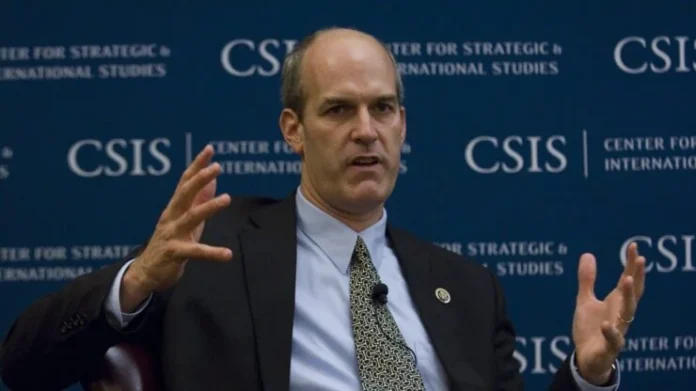Paris: As US Congress weighs providing more funding for the Defence Department over the debt ceiling caps, including increased security assistance for Ukraine, members of a US Congressional delegation to the Paris Air Show made it clear they expect to see the Pentagon’s topline rise.
Or, as one member put it bluntly, lawmakers likely “can’t help” giving the Pentagon more money in the coming months.
Rep. Rick Larsen, practically treated a Ukraine supplemental spending bill as a foregone conclusion in a press briefing hosted by the Aerospace Industries Association at the Paris Air Show, where he went on to suggest lobbying by the Pentagon would result in greater funds beyond the spending cap set as part of the debt ceiling deal.
“Taking the Ukraine supplemental, it’s gonna be a Ukraine supplemental-plus, because Congress can’t help itself,” said Larsen, a former member of the House Armed Services Committee (HASC) who is now the ranking member on the House Transportation and Infrastructure Committee.
“The Pentagon will show up and say, ‘well, we didn’t get this other stuff in the bill,’” he continued. “So maybe we should just use a supplemental for these other things that are unrelated to Ukraine. And Congress will probably rollover and do that for them, which you should take it as a criticism,” he added, pointing to budget bloat for the Overseas Contingency account.
Larsen was joined by the largest congressional delegation in history at the Paris Air Show, which will meet with French President Emmanuel Macron. And he was not alone in stating that supplemental spending might benefit the Pentagon.
For his part, Rep. Sam Graves, who also sits on the HASC, called the prospect of additional military spending to support Ukraine and potentially other national security challenges a “strong possibility,” adding that “I think you’ll see a supplemental.”
Under the debt ceiling limit set last month, total national security funding — primarily DoD, but also nuclear weapons programs under the Department of Energy and a few other small pots of money, known collectively as 050 funding — was capped at $ 886 billion.









